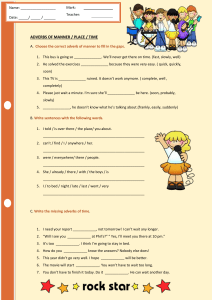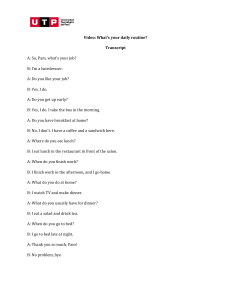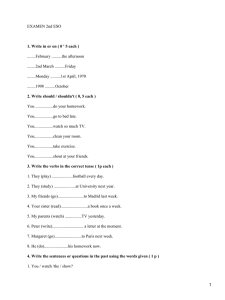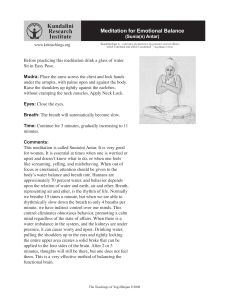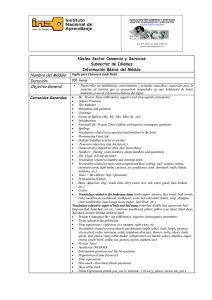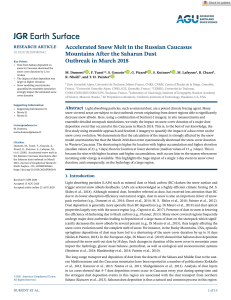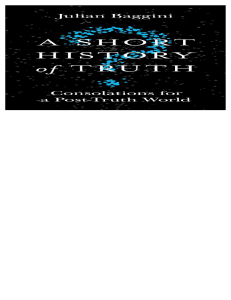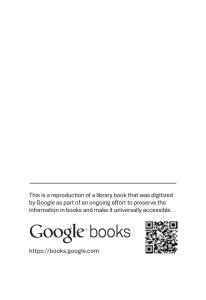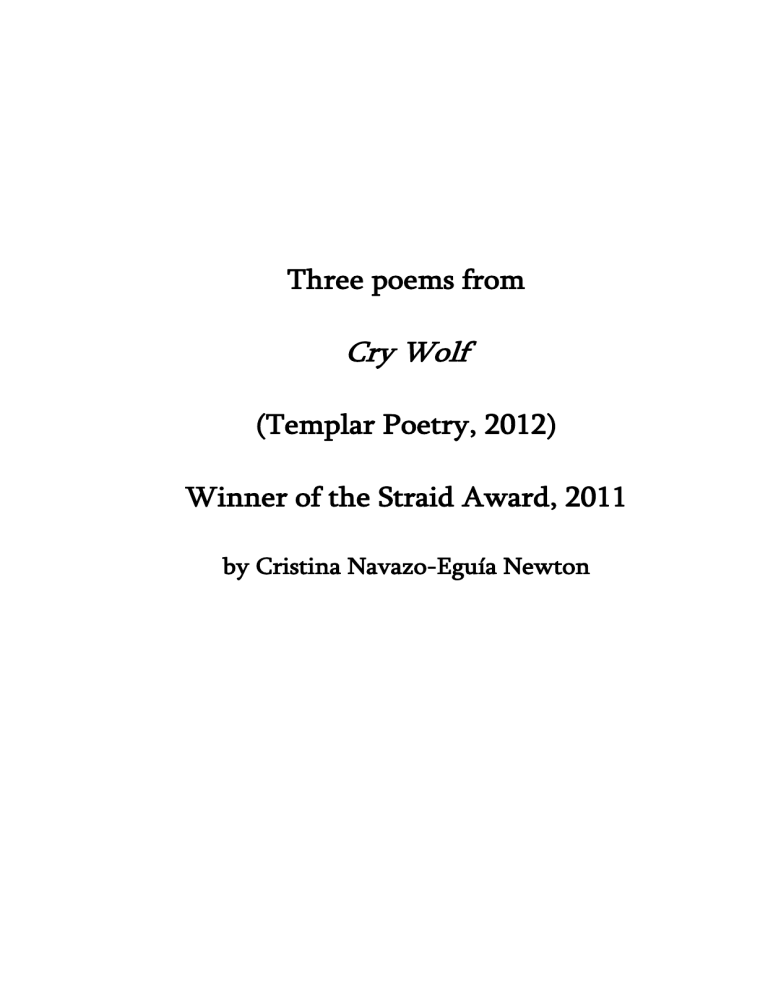
Three poems from Cry Wolf (Templar Poetry, 2012) Winner of the Straid Award, 2011 by Cristina Navazo-Eguía Newton Edison Peña Runs The Six Miles There are places in the Atacama desert the rain has never been to. The rain doesn’t know the inside of the puckered tunnels of the collapsed mine where Edison Peña dreams he’s eating a fist of sand. The running scene features him, guzzling from the tap over the kitchen sink, and his wife, with washed hair, reminding him there are glasses and fondness; then a close up of himself forever finishing that bedrock and rocksalt bite. When he wakes up, he’s still a lump in the gut of a whale that won’t cough up. A knot in the throat of a world that swallows hard. His body is eating itself half a mile down the driest place on earth. Time stews slowly in the dumb tum of the mine. Time has nowhere to go in a tumor of rock on a spoonful of tinned fish and a sip of bad milk every other day, and drills holes in a man that it fills with dross. So Edison Peña gets up and runs up and down the doltish pit, till he reckons he’s done the six miles from the mouth of the mine to the mouth of his woman waiting at the door. Then he stops with his face to the wall. Ivanhoe Prospections To the people of Monywa, Burma He held her by he did not and kept on the open pit in the abused she’d known when the water her left hand the hand need to strike an eye over her shoulder the hunch of copper streaks side f the hills the way of the river well did not run bright blue before it was dragged away for these prospections she’ll be fine if she but remembers on the furtherance of great things there is a tab she’ll be safe she just needs to let the other hand heal in the cast of this new enormity keep her eyes down her back loaded her feet moving away from the smoking shacks her mouth shut in the presence of uniforms Love’s Prospects Yours is the prospector’s love. I am sluiced and raced and winnowed. You gold-rush through my gangue. The home-coming of the surveyor: to rest on the cadastral map where his metes-and-bounds are tangible. Furlongs of dross and lode, the prospects of your love. Welcome to Eritrea In support of Helen Berhane and the prisoners of conscience still held in shipping containers in Eritrea. This is where they pack me up. Time says nothing: clamped and gagged, it lets my pulse come back with a rusty jerk, the taste of alloy. Here is here and here, a caulked tin ventricle, where I clog the arteries of my country. This is where I cocoon in my own filth. I slowly cook during the day, and go straight from the oven to the freezer in one dish. This metal container is no metaphor. I have been preserved. I am being shipped without moving, a crouched rat rotting in cargo sweat. Welcome to the compound, you dissident. I hear the knuckling down, the stiff fouling: there are other rats, my neighbours, my incommunicado kin; dragged out to the latrines once a day, then shoved back into their airtight cans, or butted under ground. It’s time out until each one denies or dies, as we cringe, trussed-up, each in our shrunk dimension, where we’ll manage our disfigured oxygen, we’ll fold and wait like foetuses, learn to breathe with the mind of a beetle. This blind tank amplifies the swearing, all the bloody clang of pow. This new beat sticks in your metronome, it drums your brain like live surgery. Their loud slogans teach you what comes next, tattooing it into your mettle. Soon you will not recognise yourself. Darkness drinks the darkness of our hair till we glow in an orange halo and toothless from this sun theft, shackled in a three by three fixed thirst. We monologue to shrinking walls that talk back in our face. One would have to lose the thread of days, to loosen oneself from this raw drag. Outside we stood purposeful and wonderfully made; we developed in brightness, our souls responded to increments of light. We, good for a pulp. The embryo goes to the ground. We are ripening for history, and the day outside days Full Circle On Second Circle, a film directed by Alexander Sokurov and written by Yuri Arabov. “Men become mortal the night their fathers die” , from ‘Moonbright’, Dannie Abse. The man slogs through the snow, the wind knuckles the man. The blizzard blinds him; he crouches, bows his head to warm his throat. His hat falls, the drift blows icedust down his neck. If this was just a film he could give up, die in the snow. But this is live. Siberia on his knees. The only way to make it to the house is through the cold. There are different sorts of cold. One stays out with the snow, the stopped tractor, the burst pipes, the ruined barn and workshops. The other begins indoors with the bed, a cabinet, a table and two chairs, a leak over the two ring cooker. The leaching fridge. A bath filled with weeks of unwashed stuff. The grime, the unsafe switches, naked bulbs. Rust, rot, grit, mould. The bed is urgent, as here is where the old father has died and is found when the son comes in. The son first sees the feet, then the absentmindedness and rigor of the face. Shaking the bed won’t raise the dead, and his own breath just clouds the room. The metal frame of the bed is a fact. The cruddy mattress is a fact. The facts do not alter while one sits in the room next door. Sobbing, if one can sob, does not reverse what’s done. Nothing ends with death, except that one life. The body is here, stiff and bare under the sheet, and needing handling. It has been hollowed. Sparse as a fallen bird. The room reeks. Who will handle the body lying here without a father? The son’s now at the front and time shoots straight. Things are black or white in winter, with a flush of red from the midnight sun on a side wall by the stairs. Something, maybe wind or ice, clangs through the structure of the place. Snow high at a standstill. One makes efforts not to pray. We are mumbling to the cold. The body has to be washed, dressed in a decent shirt, issued a certificate, measured for the box. The white ones are for brides and more expensive. All this takes time. The son is at the front, making decisions under 300 rubles, looking through the old man’s vests for cash to pay the funeral officer, opening the door to the embalmer, who will do the job much more quickly with the help of his two sons (will they one day embalm their father?), while the deceased man’s heir squats near the sink, seeking the numbness of a drip, a rhythmical opening and closing of the hands. The embalming’s done. It’s made things worse, and sleep in peace impossible. We tell the cold outside all we should have said to the father and how unprepared we are for any death or duty. He’s got the coffin now but no clue how to go about it and the funeral officer absolutely wants socks on the dead. Is he an idiot and can’t even see a man can’t go like that? The son takes off his own. She thinks he’s a git, but he insists he can do it, can put them on his father by himself. It’s obvious he’ll need the slippers, not the shoes. Is he asleep or going for a walk? They push flowers round his head. Taking the coffin out and down the stairs is ridiculous, a job of awkward furniture for three-strong with three failures. We get spared the committal, more cold mutter under one’s breath. Only once the body’s gone can the son go through belongings: a tin box with odd buttons, pills, a badge, safety pins, a cigarette holder from the war, a knuckle duster. The stench needs to be burnt, in a tall pyre, overnight. Interim You are getting on, and past that safe threshold before which one takes kith and kin for granted. I’m allowed a spell on loan to get ready for that call letting me know something I can’t skip, the gist of it encrypted in a bolt and flushed 1,300 miles up northwards as soundbites I must decipher calmly. I will first need to consider the messenger more carefully than I’ll need to consider you: it is likely to be a close relation, alive and grieving. That’ll be it, then. You, apart from you. A final statement. A box that fails to answer, with a name-tag stuck to rags. How utterly unnatural this whole natural thing, this slope to chaos, this thermodynamics second law. I have to brace myself for the inability to run in time to the clumsy dress rehearsal of departure, when we rescue wasted time and love’s kissed back to life from under the rattle of last breath. I’ll be useless in my exile from your warm leftovers; they’ll be too feeble in their slender leniency of soft fruit after picking, of fish fished. Before the prescribed deadline of bad news, I organise my mental homages to you: you teaching me to wash my hands professionally; you letting go of the bike; letting go of me at the deep end of the pool, proving that necessity was forced be the mother of invention. You running ahead of my dog-bitten self, incapable of facing it. You telling me to fetch the dictionary, and find out for myself. You, knowing every term. You, who never had a knee for dandling, a dad after the war. You cycling, diving, digging, reaping, self-sufficient, by your leeks and onions, like most things to do with you, beyond my remit, and me standing on the side, sucking the one drop of nectar in the throat of the honeysuckle, and naming all things and the crack lines in between. With this absurd mileage between you – from whom I came-, and me –who came from you-, how would I reach the derelict palace of you in time for pressing any gentleness into your rigor mortis. How does one live an orphan and outlive the child we’ve been?

